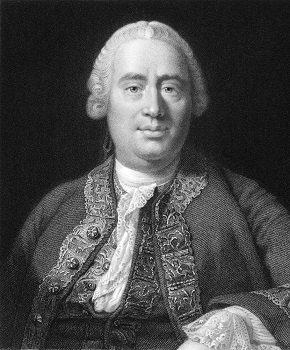Liberty Matters
resumptions and Default Positions
 In that portion of his response directed toward me, Nick speaks of liberty as "the default position."
In that portion of his response directed toward me, Nick speaks of liberty as "the default position."Liberty as default position might mean that it is important to understand that lawmaking always works upon a background configuration of ownership and open-ended voluntary association among such owners. In this sense, for example, employers are free to pay wages of one dollar an hour until a law says otherwise. Moreover, the formulation of such law is built upon such a background: that is, such a law specifies restriction, not liberty.
But liberty as default position might mean something quite different. Nick also seems to use "default position" for the idea of a presumption of liberty, by which I mean: in considering two policy reforms (one of which may be to make no reform at all, leaving the status quo), the presumption should go in favor of the reform that rates higher in liberty—that is, the burden of proof should be placed on any such person who favors the lesser-liberty option.
Here, I think that talking "default position" is a bit confusing. Calling something "the default position" connotes that if nobody takes action regarding the matter, or even if nobody gives it any thought whatsoever, the position persists or prevails. But if an intervention like the minimum wage is the status quo, taking no action means that such restriction, not wage-rate freedom, is the default. For this reason I'd prefer to express the idea as presumption of liberty, meaning that, even though the minimum wage is the status quo, in the matter of estimating or evaluating that policy, one should approach the matter with a presumption of liberty; that is, approval of the minimum wage (which, let's assume, is the status quo), as compared to a liberalizing reform, should bear the burden of proof.
Hume and especially Smith clearly taught a presumption of liberty. It must be recognized, however, that that is not the only presumption they taught. They also accorded the status quo a significant presumption. (Note: virtually all of the exceptions to the liberty principle that they endorsed or countenanced were status-quo policies in their time and place.)
The two presumptions—of liberty and of the status-quo—stand shoulder to shoulder against reforms that would reduce liberty. But when it comes to a liberalizing reform, that is, a reform that would augment liberty (reducing or abolishing the minimum wage, say), the two conflict.
Out of such conflict, the attitude or posture exhibited by Hume and Smith varies. Sometimes the liberty presumption routs the status-quo presumption, as when Smith denounces, even fulminates against, long-standing interventions and calls for abolition. But sometimes the attitude is acquiescence toward status-quo restrictions, though often with a mind toward gradual liberalization. And, indeed, sometimes the posture is even apparent firm approval of the intervention.
Interpreting the exceptions and equivocations, and the reasons, justifications, and rhetorical strategies involved in them, in Hume and Smith brings us into fascinating fields of thought.
Copyright and Fair Use Statement
“Liberty Matters” is the copyright of Liberty Fund, Inc. This material is put on line to further the educational goals of Liberty Fund, Inc. These essays and responses may be quoted and otherwise used under “fair use” provisions for educational and academic purposes. To reprint these essays in course booklets requires the prior permission of Liberty Fund, Inc. Please contact oll@libertyfund.org if you have any questions.